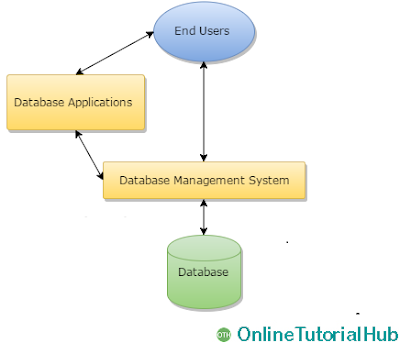Database Management Systems (DBMS):-
A database is a collection of logically related information. Any piece of information can be a data, for instance, name of your college.
Database Management is the task of maintaining databases so that information is readily available. The software required to perform task of database management is called Database Management System (DBMS).
Database Management Systems (DBMSs) are designed to maintain large volume of data. Management of data involves:
- Defining structures for data storage.
- Providing mechanisms for data manipulation such as adding, editing, and deleting data.
- Providing data security against unauthorized access.
Database Management Systems (DBMSs) are now available on a wide range of computers, from desktop to mainframes. The size and power of the computer determine the system facilities such as security and storage.
Examples of DBMS : MySQL , DB2 , Oracle , Microsoft SQL Server , Sybase etc.
Component of DataBase Management System (DBMS):-
There are four components of Database Management System (DBMS) :1) Users : Users can be of any kind for example, DB administrator, System developer or database users.
2) Database Applications : Database application can be Personal, Departmental, organization’s or Internal.
3) Database Management System (DBMS) : Database management system is a software that allows creation and manipulation of database.
4) Database : A database is a collection of logically related information.
Function of Database Management System (DBMS):-
- Data Definition
- Data Manipulation
- Data Security and Data Integrity
- Data Recovery and Concurrency
- Data Dictionary Maintenance
- Performance
Advantage and Disadvantage of DBMS :-
Advantages:
- Data independency
- Efficient data access
- Data integrity and security
- Data administration
- Reduced application development time.
Disadvantages:
- Large in size
- Complexity
- Costly.







0 on: "SQL # 3 - Introduction to Database Management System (DBMS)"